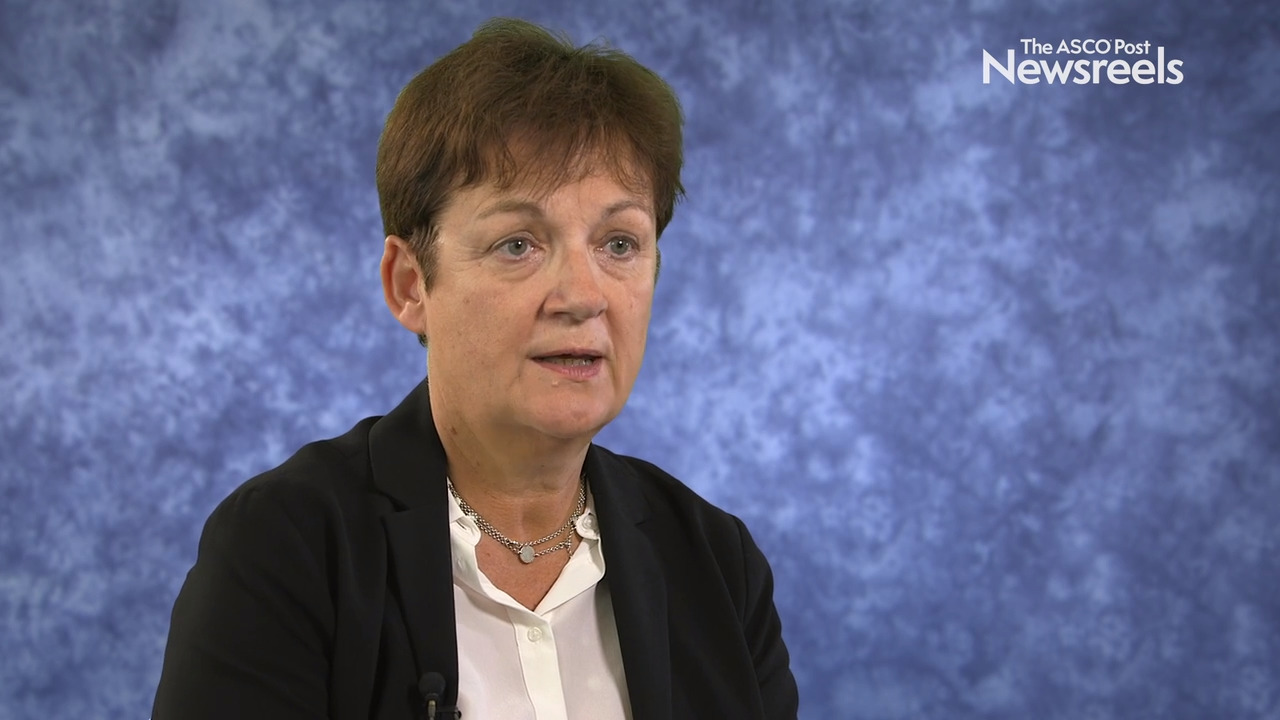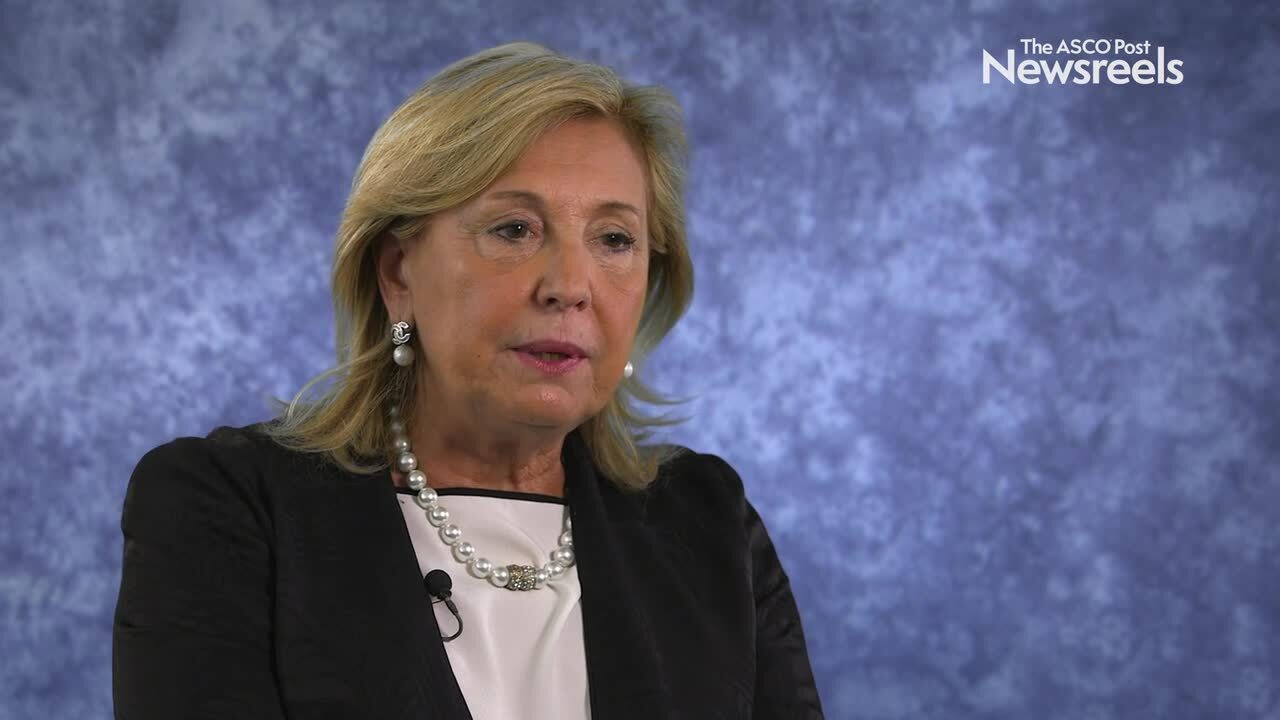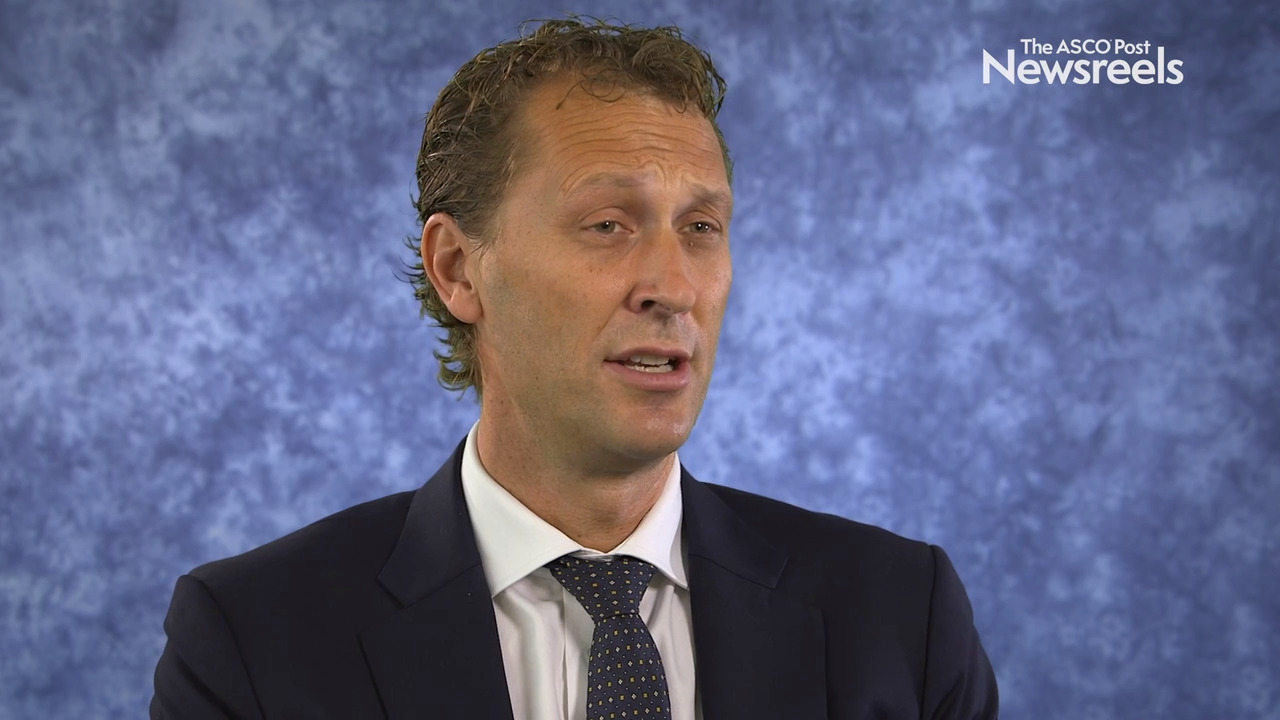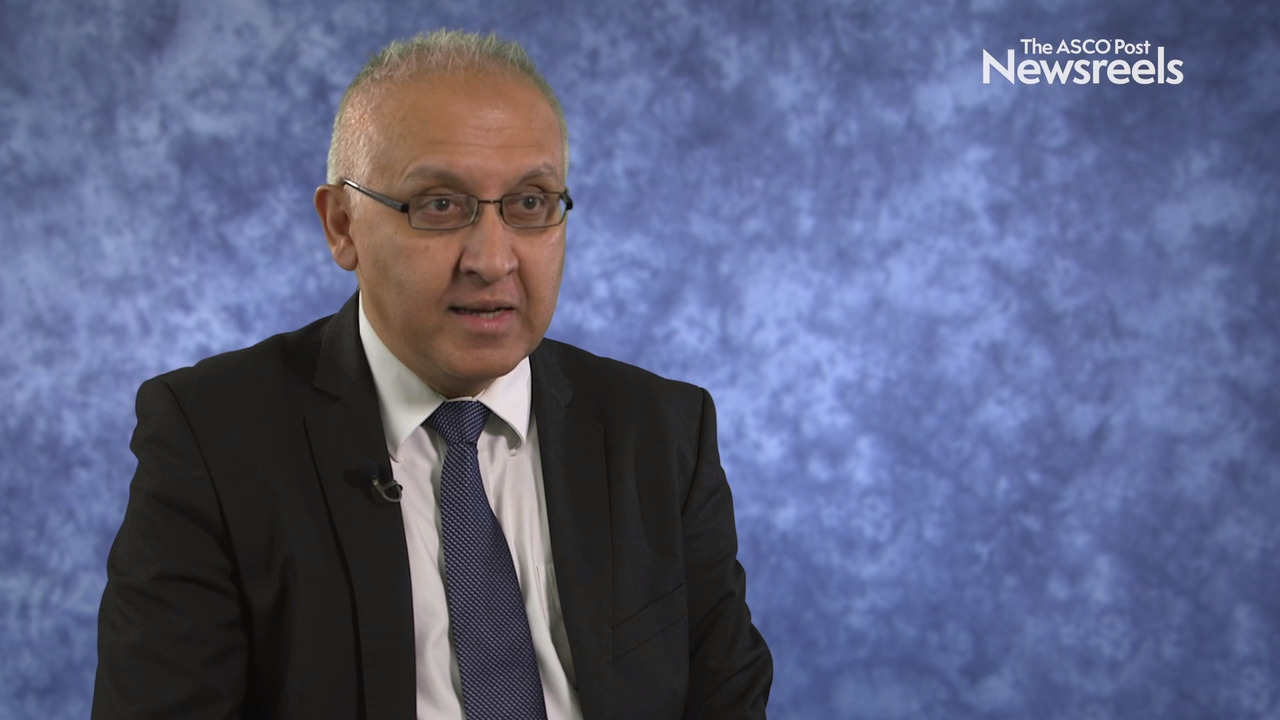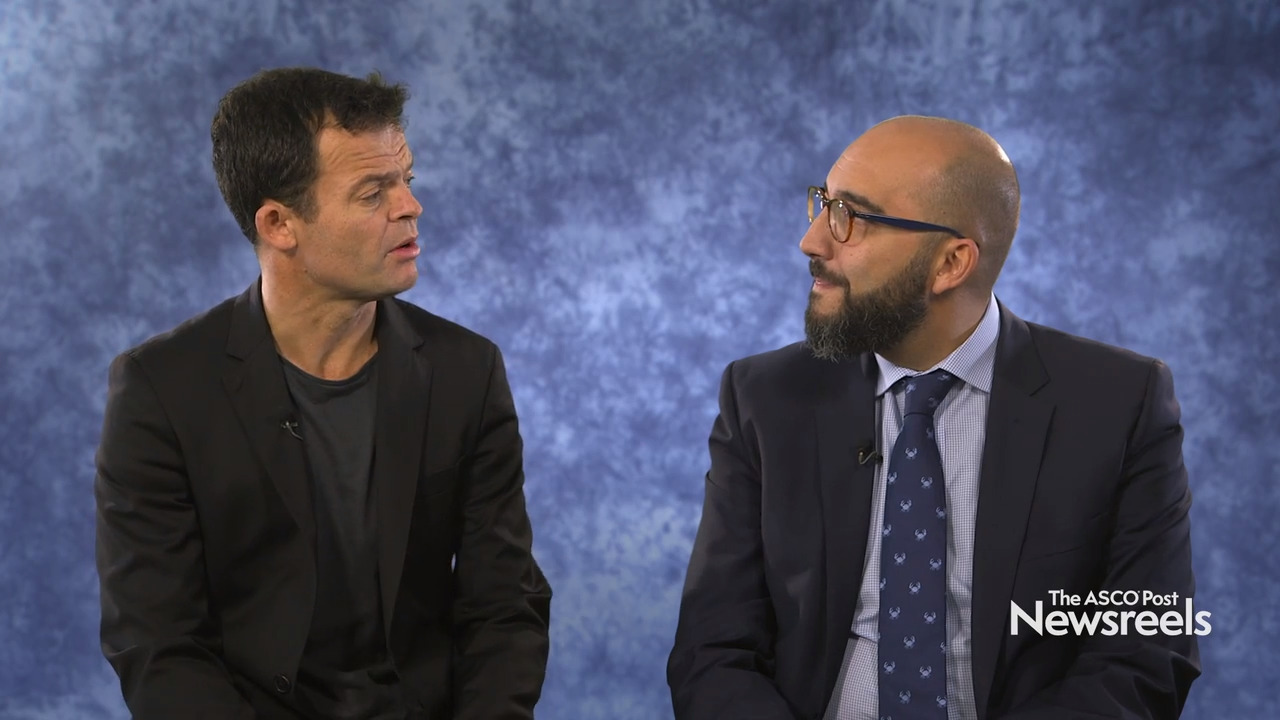Angela Lamarca, MD, PhD, on Liver Metastases From Intrahepatic Cholangiocarcinoma
ESMO 2019 Congress
Angela Lamarca, MD, PhD, of the Christie NHS Foundation Trust, discusses findings from a study that showed new staging criteria should be considered for patients diagnosed with liver metastases in the absence of other extrahepatic tumor spread (Abstract 731P).
Véronique Diéras, MD, of Institut Curie Paris & Saint Cloud, discusses results from the phase III BROCADE 3 trial, which investigated the PARP inhibitor veliparib in combination with carboplatin/paclitaxel in patients with advanced HER2-negative, germline BRCA–mutated breast cancer (Abstract LBA9).
Nicoletta Colombo, MD, of Istituto Europeo di Oncologia, discusses the efficacy of lenvatinib/pembrolizumab in metastatic endometrial cancer. The combination showed antitumor activity, regardless of tumor microsatellite instability or DNA mismatch repair status (Abstract 994O).
Peter Schmid, MD, PhD, of Queen Mary University of London Barts Cancer Institute, discusses pathologic complete response data from a phase III study of pembrolizumab/chemotherapy vs placebo/chemotherapy as neoadjuvant treatment, followed by pembrolizumab vs placebo as 6-month adjuvant treatment for early triple-negative breast cancer (Abstract LBA8).
Mansoor R. Mirza, MD, of Copenhagen University Hospital, offers his perspective on three studies presented in the Presidential Symposium: the PRIMA/ENGOT-OV26/ GOG-3012 trial (niraparib for newly diagnosed advanced disease); the PAOLA-1/ENGOT-ov25 trial (olaparib plus bevacizumab maintenance therapy in newly diagnosed advanced disease); and the VELIA/COG-3005 study (integrating veliparib with front-line chemotherapy and maintenance therapy) (Abstracts LBA 1–4).
Thomas Powles, MD, PhD, of Queen Mary University of London, and Enrique Grande, MD, PhD, of MD Anderson Cancer Center, Madrid, discuss findings of the phase III IMvigor130 trial on the efficacy and safety of atezolizumab as monotherapy or combined with platinum-based chemotherapy vs placebo plus platinum-based chemotherapy in previously untreated locally advanced or metastatic urothelial carcinoma (Abstract LBA14).
